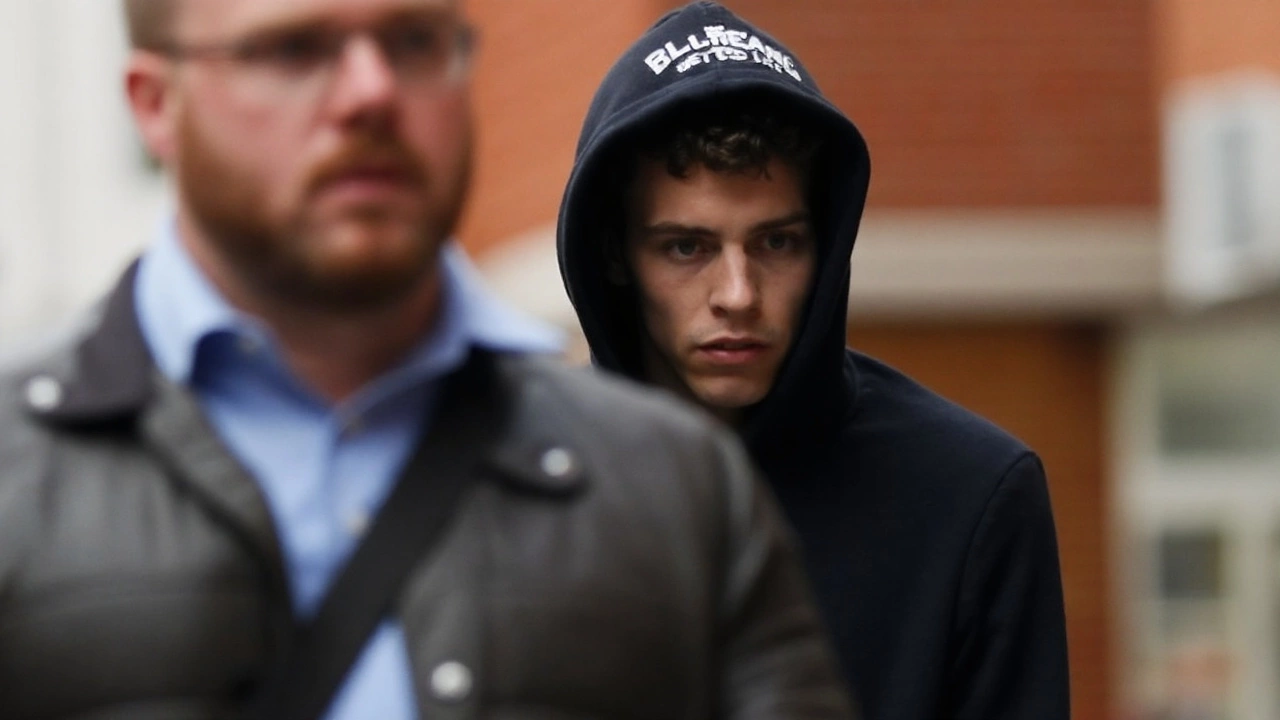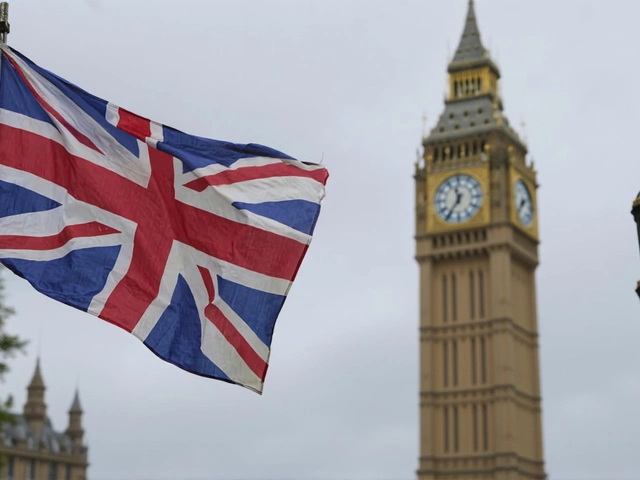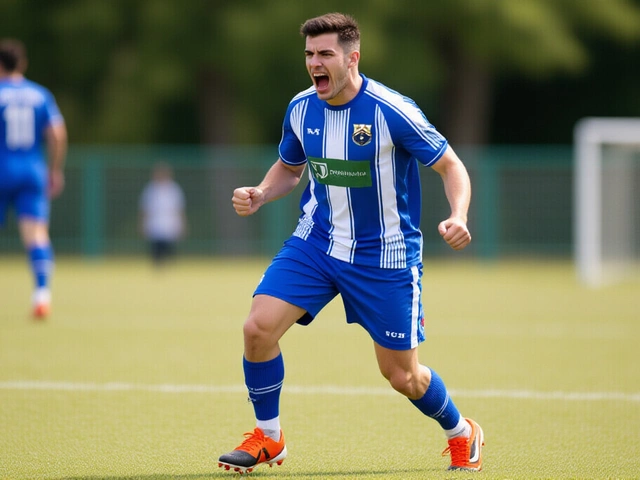How a rising star ended up leaving anyway
Manchester United concluded their own review found the online material did not tell the whole story and said the player had not committed the offenses he was charged with. Yet he still left Old Trafford. That tension—legal innocence on one hand, moral responsibility on the other—explains why the club ended up sending Mason Greenwood out on loan and stepping away from a full reintegration.
Greenwood’s path from academy prodigy to controversial exit moved fast, then dragged for months. He joined United at six, debuted for the first team at 17, and quickly became a regular. On January 30, 2022, everything changed. Greater Manchester Police arrested him on suspicion of attempted rape and assault after images and an audio clip spread on social media. United suspended him immediately. He didn’t train, didn’t play, and vanished from matchday life.
In October 2022, the Crown Prosecution Service (CPS) charged him with attempted rape, controlling and coercive behavior, and assault occasioning actual bodily harm. A 10‑day trial was penciled in for late 2023. Then, in February 2023, prosecutors dropped the case. They said key witnesses had withdrawn and new material meant there was no longer a realistic prospect of conviction. In England and Wales, that’s the threshold. If a conviction looks unlikely, the CPS stops.
United didn’t press pause. They opened their own six‑month review in February 2023. It wasn’t a courtroom; it was an employment and safeguarding process. The club looked at what they could access: interviews with people involved, information beyond what the public had seen online, legal advice on employment law, and the realities of bringing a player back into a squad watched by millions. They also weighed the alleged victim’s perspective and rights. That mix—evidence, duty of care, brand values, and safety—doesn’t fit neatly into a headline.
On August 21, 2023, United went public. Their statement said the social media material did not provide the full picture and that the player did not commit the offenses he was charged with. It also said he had made mistakes and was taking responsibility for them. Still, the club decided a return to Old Trafford wasn’t right. They said everyone involved, including Greenwood, recognized the problems with him playing for United again. The solution was a separation without terminating his contract.
Why did that matter? Because even with no trial and no conviction, clubs operate under a different standard than criminal courts. Inside a workplace, it’s the “balance of probabilities,” not “beyond reasonable doubt.” That means leaders ask: what likely happened, what could happen next, and what risk do we bring onto our pitch, into our stands, and into our partners’ boardrooms? It’s law, but it’s also trust.
Then came the timing. With days left in the 2023 summer window, United arranged a one‑year loan to Getafe in La Liga. It took him off the team sheet, kept him on the books, and shifted the immediate focus to Spain. It also bought United time—time to calm the firestorm, time for the squad to settle, and time to consider the long-term future without rushing a permanent sale.
The commercial fallout had already started months earlier. Nike confirmed in February 2023 they no longer worked with him. In the gaming world, publishers removed him from updated editions and databases following the original arrest. Those decisions weren’t about court standards either; they were about optics and policies that zero in on reputational risk.
What did all this feel like inside United? The club’s chief executive, Richard Arnold, wrote to supporters saying the process was difficult and that the decision wouldn’t please everyone. Fans and pundits split into camps: some argued the club should cut ties immediately on principle; others pushed for reinstatement after the CPS decision. The debate was loud and uncompromising. For a global club, that noise can shape outcomes as much as a legal brief.
There was also the human part. The alleged victim’s wishes and rights were central to the process, the club said. That’s not just a line. In cases like this, even when courts step back, survivors’ safety and privacy aren’t optional—they’re part of modern safeguarding norms. Clubs have learned, sometimes the hard way, that “not guilty” in court doesn’t end their responsibilities to people affected by what happened off the pitch.
Inside the squad, reintegration can’t be handled with a single team meeting. You’re asking coaches, teammates, and staff to carry the weight of a controversy that will follow the team from tunnel to press room. The women’s side of the club, academy parents, community staff—everyone reads the news, fields questions, and lives with it. Clubs ask whether a player’s return would impact other employees’ sense of safety and the club’s ability to represent its stated values. That’s not window dressing; it affects who wants to work there.
From a legal standpoint, United had two broad options after charges were dropped: terminate or reintegrate. Terminating without a criminal conviction would be risky unless employment evidence cleared the high bar required to dismiss. Reintegration would be lawful but potentially explosive. The loan was the middle lane: keep the contract, move the player, reduce immediate pressure, and leave future decisions to another window.
If you’re wondering whether sponsors dictated terms, the club said the final call was theirs. But big organizations don’t make choices in a vacuum. They listen. Supporter groups wrote to the club asking for transparency and survivor‑led policies. Broadcasters planned for the media storm. Commercial partners asked for briefings. These conversations don’t show up on team sheets, but they shape the landscape executives navigate.
Public opinion was also shaped by the words United used. The line that the online material did not tell the full story, paired with “he didn’t commit the offenses,” clashed with the way many fans experienced the original posts. To some, it sounded like the club was leaning toward exoneration while also declining to bring him back. That gray zone—“we believe he didn’t do what he was charged with, but he can’t play here”—left almost everyone a little unhappy.
On the pitch in Spain, he got minutes and started to rebuild match fitness. That mattered for both football and finance. If he played well, his market value would recover, giving United real choices: a permanent sale, a second loan, or, at least in theory, a reconsideration years down the line. The club’s calculation was simple: manage risk now, keep options later.
Zoom out, and there’s a wider football trend here. Clubs are writing playbooks for cases that exist between criminal court standards and workplace expectations. The steps usually look like this:
- Immediate suspension pending legal process and internal fact‑finding
- Cooperation with police and limited public comment to protect due process
- Independent or semi‑independent review with legal, HR, and safeguarding input
- Engagement with stakeholders: affected individuals, staff, supporter groups, and partners
- Decision under employment law thresholds, not criminal law
- Risk‑managed outcomes: reintegration with conditions, separation, loan, or termination
In practice, that means clubs need better policies long before a crisis. Clear codes of conduct. Survivor‑first protocols. Training for executives on how to weigh evidence, uphold duty of care, and communicate without poisoning either legal cases or workplace trust. When these cases hit the headlines, it’s already late.
There’s also a media layer. Social clips spread in minutes; corrections and nuance arrive weeks later. By the time the CPS drops charges, public opinion is set. Clubs can’t fix that. They can only show the steps they took and accept that some fans will never agree with the outcome. Transparency doesn’t erase disagreement, but it can prevent the belief that decisions were made behind closed doors to protect assets over people.
United’s approach tried to live in that space. They said they sought information not in the public domain, looked at welfare for all involved, and decided the best path was away from Old Trafford. The fact they considered reintegration until late in the process tells you how knife‑edge the call was. In elite sport, every choice is graded against winning next weekend and protecting the club for the next decade. Sometimes those collide.
For Greenwood, the career question is straightforward and brutal: can he play football, and where? A loan gave him a pitch and a reset. It didn’t end the debate. Some fans and pundits believe any return to the Premier League should be off the table forever. Others think the criminal standard should be the only standard. The sport now lives in the gap between those views.
The England angle faded long before the loan. His first call‑up and debut were followed by a 2020 disciplinary breach with the senior squad that stalled his international path. After 2022, the national team picture effectively closed without a formal ban. International football is as reputational as it gets, and federations avoid risks they don’t have to take.
What about the dressing room dynamics back at United? Managers and players are used to pressure, but some situations strain a group more than a title race. A high‑profile return after a case like this means every press conference becomes about something other than the game. Coaches weigh performance gains against daily distractions and the risk of alienating parts of the squad—men’s and women’s—who might feel the club’s values are compromised. That calculus is hard to quantify, but it’s real.
From a legal‑employment perspective, one point often gets missed: the absence of a conviction doesn’t automatically reset the relationship between employer and employee. Trust is part of the job. Clubs can decide that trust is damaged beyond repair without proving criminal wrongdoing. That’s not a loophole; it’s how many workplaces handle serious reputational harm, especially where employees are public‑facing and represent the brand.
If you’re wondering what precedent this sets, it’s this: more clubs will separate the legal outcome from the football outcome. They’ll keep saying two things at once—respect due process, and protect the badge. That means more loans, more soft exits, and more statements that sound like they’re trying to please everyone. It’s messy, but it’s the new normal.
One more practical layer: safeguarding and education. Top clubs are now expanding training on consent, relationships, and digital behavior across academies and first teams. They’re reviewing crisis playbooks with external experts, and they’re writing clearer language into contracts about conduct and social media. These aren’t PR moves; they’re attempts to lower the chance they end up in this position again.
For supporters, the dissonance is hard to live with. You want your club to be fair to its people and firm about its values. When those collide, any decision feels wrong to someone. United’s call in August 2023—no return, loan out—carved out a path that prioritized the club’s wider responsibilities while stopping short of ending the contract. It was a line between law and image, between a player’s career and a club’s identity.
By the time the window shut on September 1, 2023, the immediate crisis had cooled. United had a team to pick, a season to play, and a long list of internal lessons. Greenwood had a fresh start in Spain and a chance to be seen for his football again. But the bigger story—the one about how football handles allegations, evidence, and ethics—didn’t end with that loan announcement. It’s now part of how the sport works.
What the case changed inside football
This saga reshaped the blueprint for handling serious off‑field allegations in elite sport. Three themes stood out.
First, clubs will keep elevating survivor‑focused processes. That means building systems that protect privacy, avoid re‑traumatization, and give affected people a voice without forcing them into the spotlight. In practical terms: specialist staff, trauma‑informed interviews, and decisions that consider safety beyond the stadium.
Second, executive teams will treat reputational risk like an injury crisis. They will model scenarios: what happens to ticket sales, sponsor briefings, player welfare, and broadcast coverage if we reintegrate or release? They will game out press conference Q&As and fan displays. That may feel cold, but it’s how modern clubs operate.
Third, communication matters. Statements that mix legal language with moral judgments create confusion. The clearer the club is about what it knows, what it doesn’t, and why it chose a route, the less room there is for speculation. Silence protects due process; it can also breed mistrust. Finding that balance will define how fans judge future cases.
None of that answers the simplest question fans ask: should he have played for Manchester United again? The club’s answer was no, even while saying the criminal charges did not stand and their review didn’t support them. That contradiction is the point. Football doesn’t just sell goals; it sells trust. And when trust is in question, clubs act differently than courts.






